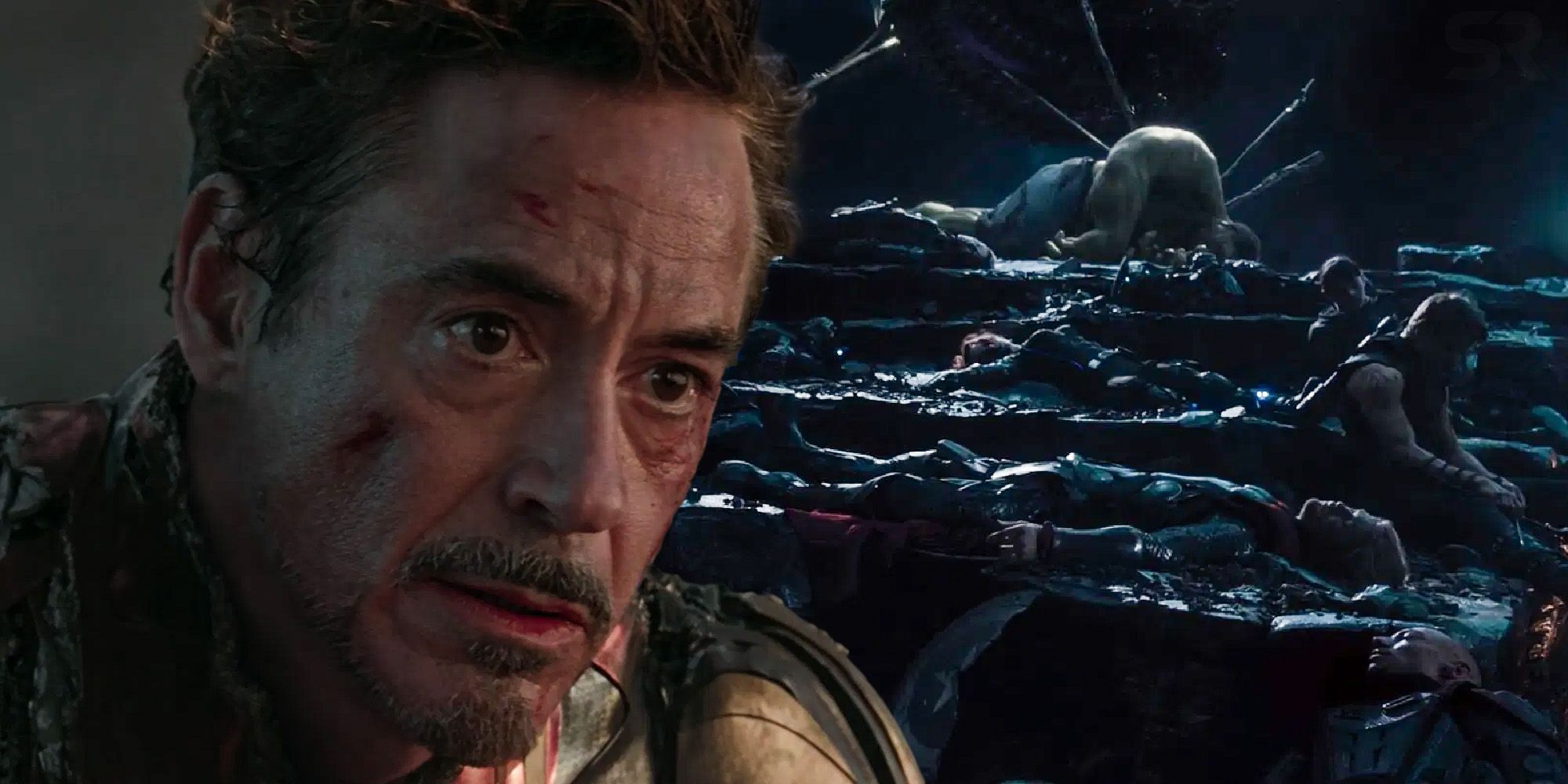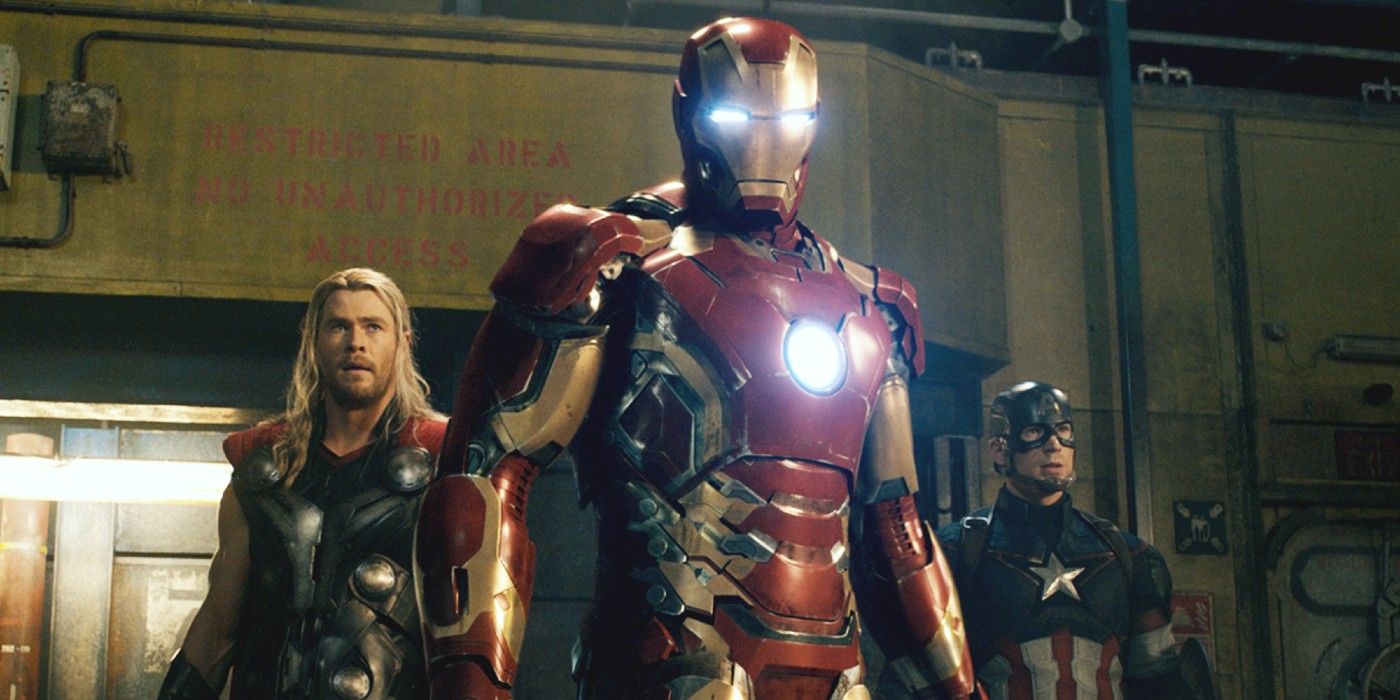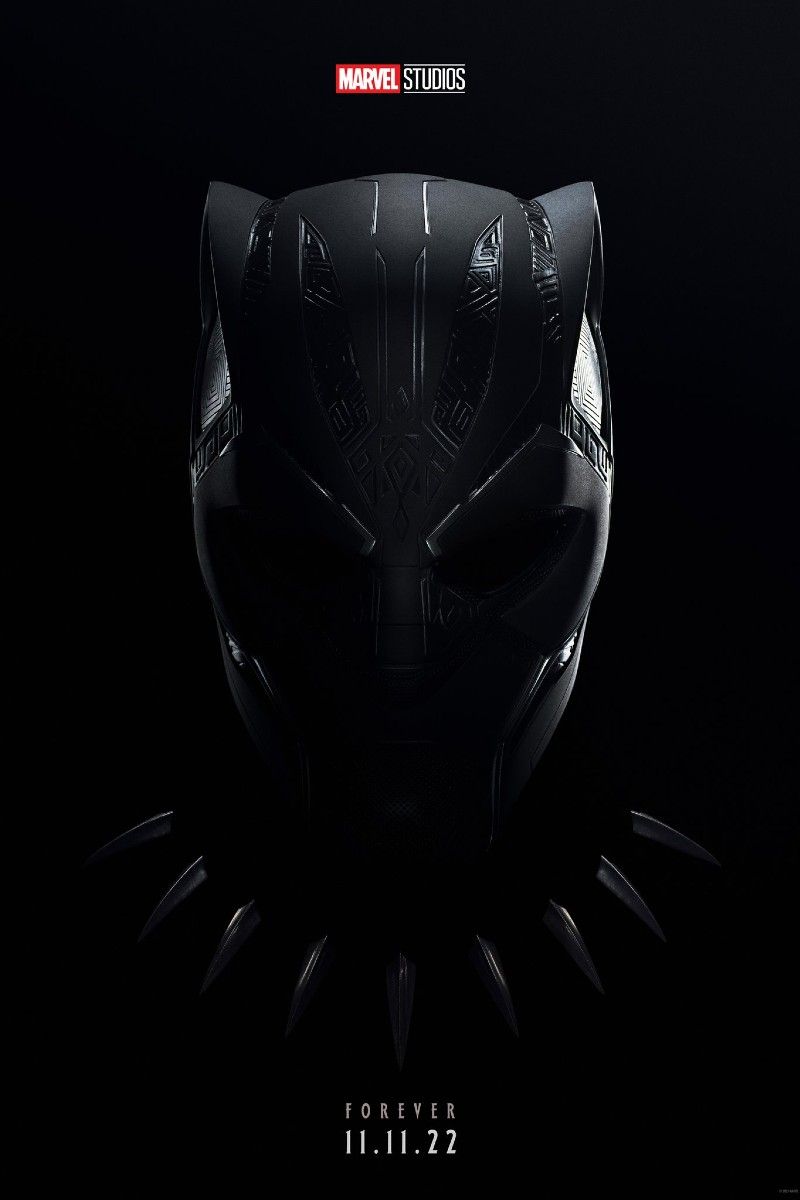How does Avengers: Age of Ultron set up Iron Man's climactic Snap in Avengers: Endgame? Early into the second Avengers film's run, Tony Stark points to the heavens and the looming Thanos, declaring “That up there, that's the endgame,” a fun Easter Egg for rewatching fans. However, the connections between Avengers: Age of Ultron and Iron Man's eventual fate run far deeper than the obvious foreshadowing.
Taking place in the MCU's Phase 2, the film sees Tony (with the help of Bruce Banner) creating Ultron, an artificial intelligence intended to bring peace that predictably runs amok. This event has some major implications for the series' larger Thanos-related plot, especially as Ultron is the one who reveals that the Mind Stone - which will factor heavily in future films - is located in Loki's scepter. Avengers: Age of Ultron also features Thor's vision, which shows the Infinity Gauntlet as well as all six stones. However, it possible that Tony Stark's character developments within the story link the film most closely to Avengers: Endgame.
In Avengers: Age of Ultron, it becomes increasingly clear just how much Tony's guilt plays into his desire to be a hero. When confronted by Nick Fury in Barton's barn, Tony tells him of Wanda's apocalyptic vision which showed him the Avengers slain and Earth being overtaken by alien invaders. Calling the potential future his "legacy" and "the end of the path" he started them on, Tony is uncharacteristically shaken. The exchange ends when Fury correctly concludes that, for Tony, the worst part of this vision was the implication that he had survived while his friends had perished. The scene is enormously prescient on a rewatch of the Infinity Saga, as Tony does ultimately watch many of his friends and loved ones perish while he remains, only to give his life to bring them back and protect them.
Though intended to prevent Wanda's illusion from becoming reality, Tony's creation of a peace-bringing A.I. backfires disastrously, leaving him feeling responsible for the destruction of Sokovia. His overwhelming guilt leads to his immediate acceptance of the Sokovia Accords in Captain America: Civil War, leading to a rift within the team that will prove crippling when Thanos finally decides to collect the Infinity Stones. After Thanos' Decimation, Tony angrily confronts Steve saying, "Guess what, Cap? We lost and you weren't there." Considering that Steve extended something of an olive branch to Tony at the end of Captain: America Civil War - giving him a cell phone and a letter telling him to call when he needed - the line reads a bit like projection on Tony's part. In many ways, it was Tony who broke up the Avengers, making Earth incredibly vulnerable to Thanos' attack.
Tony Stark has one of the most impressive and well-tuned character arcs in the MCU to date, evolving from a selfish weapons industrialist into a hero who sacrificed himself for the survival of the entire universe. Avengers: Age of Ultron serves as a significant pivot point for Tony, as he begins the complicated process of grappling with his own past actions in the hopes of finally doing the right thing. Never a man of half-action, Tony's response to the events of Avengers: Age of Ultron ultimately overcompensates, making things worse for himself and his teammates in the long run, even though his intentions are ultimately good. Tony Stark is such a tragic figure because he succumbs to a self-fulfilling prophecy, making his death in Avengers: Endgame all but inevitable.
Since the other three Avengers films have such obvious links to Thanos and the Infinity Saga's larger overarching plot, Avengers: Age of Ultron has often been long-considered something of an outlier. However, when considering it from Tony Stark's perspective, the second installment rings with new and heartbreaking resonance. The events of the film laid the ground for Tony's redemption in Avengers: Endgame, finally allowing him to rest from intense feelings of guilt and culpability. Unquestioningly, his death is one of the saddest and most poetic within the entire MCU.








